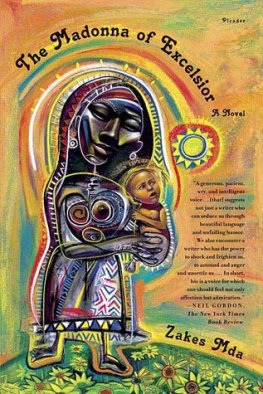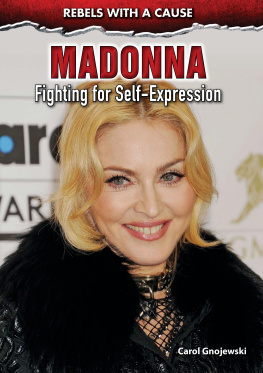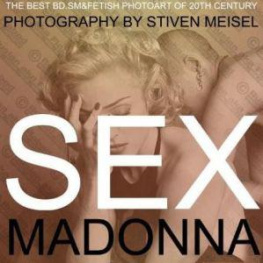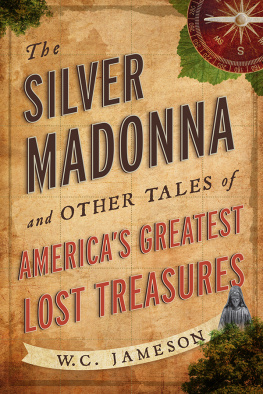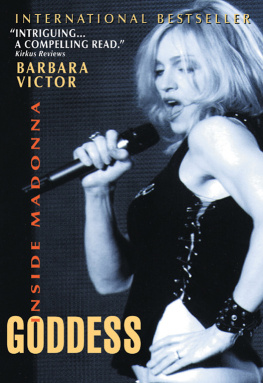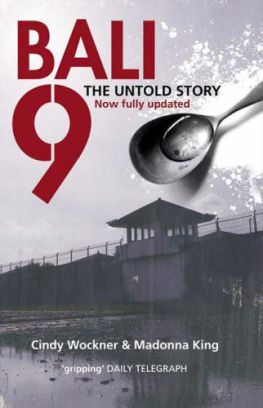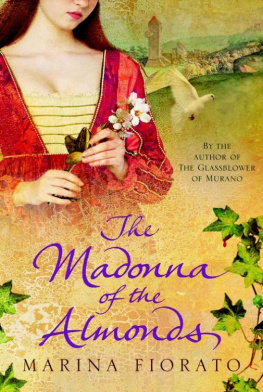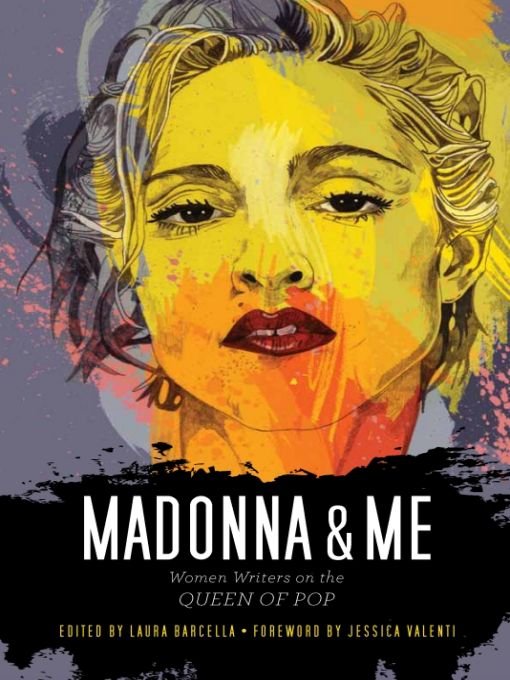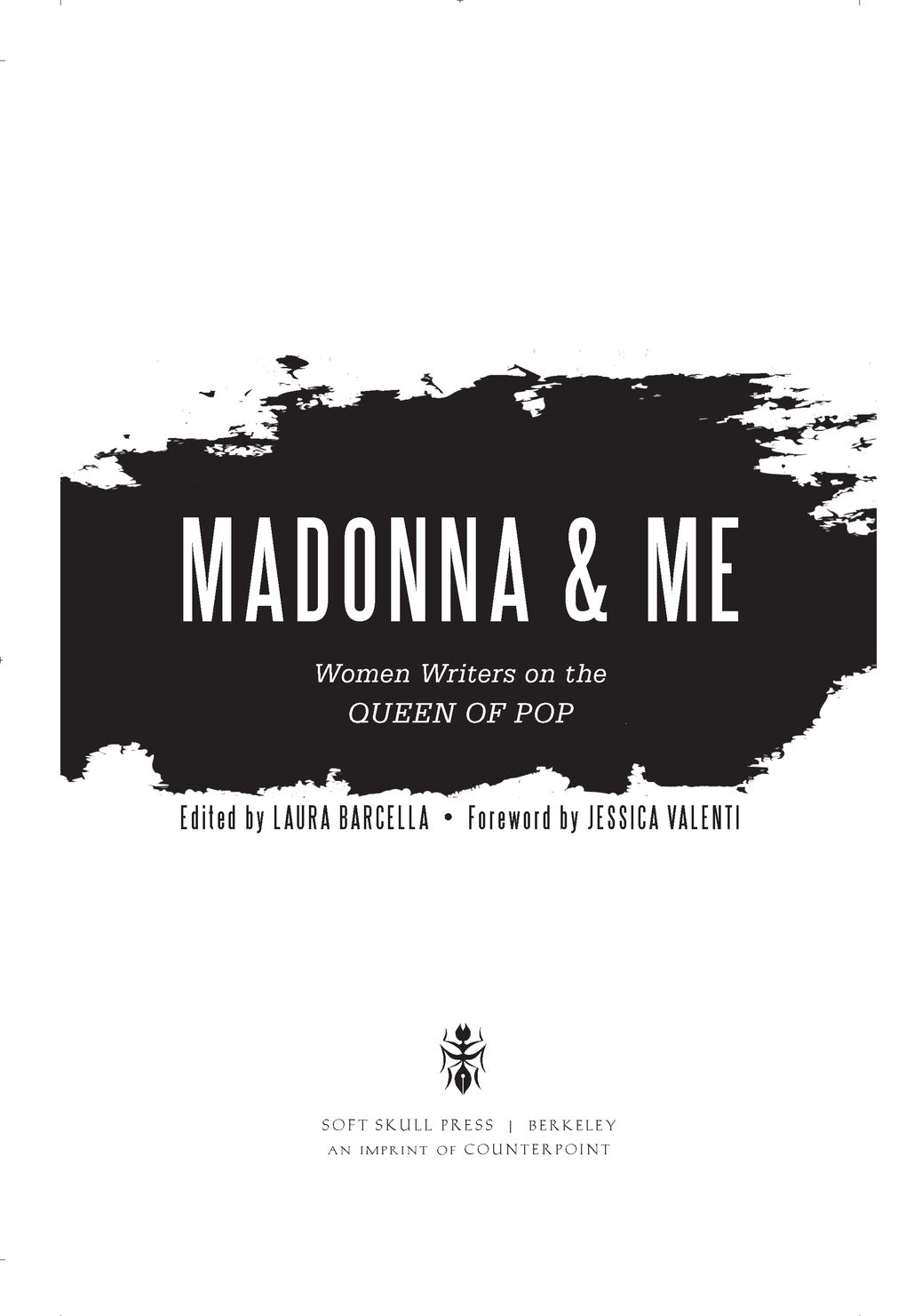Table of Contents
Praise for Madonna & Me
For someone who has spent the past thirty years defending Madonna to whoever would listen, Madonna & Me is like a homecoming. Reading these smart, funny, and moving essays by women who were influenced by the material girl brought me right back to my school years, when I was touched by Madonna for the very first time.
DEBBIE STOLLER, co-founder and editor-in-chief of BUST magazine
Sure, one Madonna gave birth to Jesusbut our Madonna gave birth to femme-inism. If youve forgotten why you should worship Madge, this hilarious, provocative collection is like a prayer to the patron saint of girl power.
JENNIFER BAUMGARDNER, author of Manifesta: Young Women, Feminism and the Future, Look Both Ways: Bisexual Politics, and F em!: Goo Goo, Gaga, and Some Thoughts on Balls
When I first heard the song Everybody in 1982, I ran right out and bought the cas-single. Now, thirty years later, I greedily read everything about Madonna I can get my hands on. Madonna is one of those rare public figures who elicit a lifelong, intensely personal fixation, making this collection of essays a giddy pleasure. By turns hilarious, thought-provoking, and touching, Madonna & Me is a fitting salute to the smart, brash, occasionally infuriating provocateur, who is always offering us something new.
JANCEE DUNN, music journalist for Rolling Stone, Vogue, and The New York Times, and author of Why Is My Mother Getting a Tattoo? And Other Questions I Wish I Never Had to Ask
Finally, an anthology that speaks to the blisteringly potent influence Madonna has had on women of our generation.
JULIE KLAUSNER, author of I Dont Care About Your Band
Madonna & Me is a collection as saucy and savvy as Madonna herself. In heartfelt and incisive ways, the contributors engage with an icon who deeply impacted the identities, sexual and otherwise, of an entire generation of girls.
JILLIAN LAUREN, New York Times-bestselling author of Some Girls: My Life in a Harem
Though it was written entirely by women, Madonna & Me can easily hold the interest of non-Madonna fans and even male readers, which is (sadly) no small feat. Highly recommended for anyone interested in music, pop culture, womens lives, and smart personal essays with heart.
SCOTT LAPATINE, founder and editor-in-chief of Stereogum, named one of Entertainment Weeklys Best Music Websites
The writers in Madonna & Me explore all that Madonna has meant to more than one generation of feisty, feminist, powerful women. They dive into her music, persona, and legacy, expressing themselves in ways that would surely give even Her Madgesty food for thought.
RACHEL KRAMER BUSSEL, editor of Women in Lust and Best Sex Writing 2012
In Madonna & Me, editor Laura Barcella shows how Madonna has become a cultural benchmark for women of varying backgrounds. Reaching far beyond pop-culture critique, the essays in this book examine Madonnaboth the woman and the legendas an allegory of the modern female experience.
STEVE LOWENTHAL, music writer for SPIN and the Village Voice, and founder of Swingset magazine
Foreword
Jessica Valenti
THERES SOMETHING ABOUT Madonna.
For nearly thirty years Madonna has fascinated people on a global scaleespecially drawing the attention (and sometimes ire) of women, who seem to love and hate her in equal amounts. Me, Im not so sure.
My first glimpse of the pop icon came in the form of her Papa Dont Preach music video in 1986. I was eight years old, too young to fully grasp the meaning behind the songand the fabulous Italians Do It Better T-shirtbut even then I could glean that she was singing about rebellion in the face of paternalism. (Though naturally it would take more than a decade and a few womens studies classes before I used that word to describe it!) It was a seductive message, one that resonated with a burgeoning feministoh yeah, and millions of other girls and women.
In the years that followed, even though my musical tastes were more hip-hop than pop, I kept coming back to Madonna. I bought her records and sometimes emulated her style. The funny thing was, save for a few songs, I wasnt really all that crazy about her music. It was herher persona, more accuratelythat drew me in. I wasnt necessarily rocking out to her, but I was watching.
I think what made Madonna endlessly fascinating to meand still doesis her ability to be a pop-culture chameleon. And unlike current celebrity reinventions, it never seems to matter if Madonna is sporting lace gloves, a spiked bra, a cowboy hat, or a dominatrix whipall of her selves appear authentic. (All right, maybe not that faux-European accent she had going for a whilebut hey, give a girl a break.) Or perhaps it wasnt that these identities were authentic, but that they were so obviously created and carefully formed that the ease with which she slid into each incarnation of herself was amazing in and of itself.
Its also hard not to love the way Madonna confounds expectations: Shes survived and thrived in an industry that reviles both female aging and sexuality that isnt male-controlled. Theres something appealing and awe-inspiring about the way Madonna simultaneously titillates and terrorizes the publicafter all, theres little that American men fear more than a sexually powerful woman. Even when its playful, or a performance! (See Emily Nussbaums essay Justify My Love, page 268, and Laura Barcellas My Pocket Madonna, page 86, for more discussion about male Madonna-fear).
Thats why its no surprise that, as this anthology indicates, theres such a wide range of womens thought around Madonna. Madgearguably the most well-known female musician in the worldembodies feminist issues from performativity and sexuality to celebrity and power.
Take the 1990
New York Times op-ed, where firebrand Camille Paglia called Madonna the true feminist:
Madonna has taught young women to be fully female and sexual while still exercising total control over their lives. She shows girls how to be attractive, sensual, energetic, ambitious, aggressive, and funnyall at the same time.
Of course, instead of Paglia seeing this as in line with feminist thought, she saw Madonna as the antidote to American feminist whininess. She argued that feminism had a man problem, and that unlike Madonnawho let men be masculinefeminists fear and despise the masculine. The academic feminists think their nerdy bookworm husbands are the ideal model of human manhood, she wrote. (An odd stance when one considers the genderbending and androgyny Madonna so often embraced, but thats a discussion for another essay!)
Bell hooks sees Madonna as someone whose performance of sexuality means little to women of color. In her essay Madonna: Plantation Mistress or Soul Sister? hooks wrote that though she sometimes admires Madonna for creating a culture space where she can invent and reinvent herself, the singer co-opts black culture and engages in a public sexuality thats mired in white privilege. (More than one writer in these pages also explores these themessee J. Victoria Sanders essay The Black Madonna, page 55, Jamia Wilsons Are You There God? Its Me, Madonna, page 43, and Maria Rahas Borderline, page 216)



